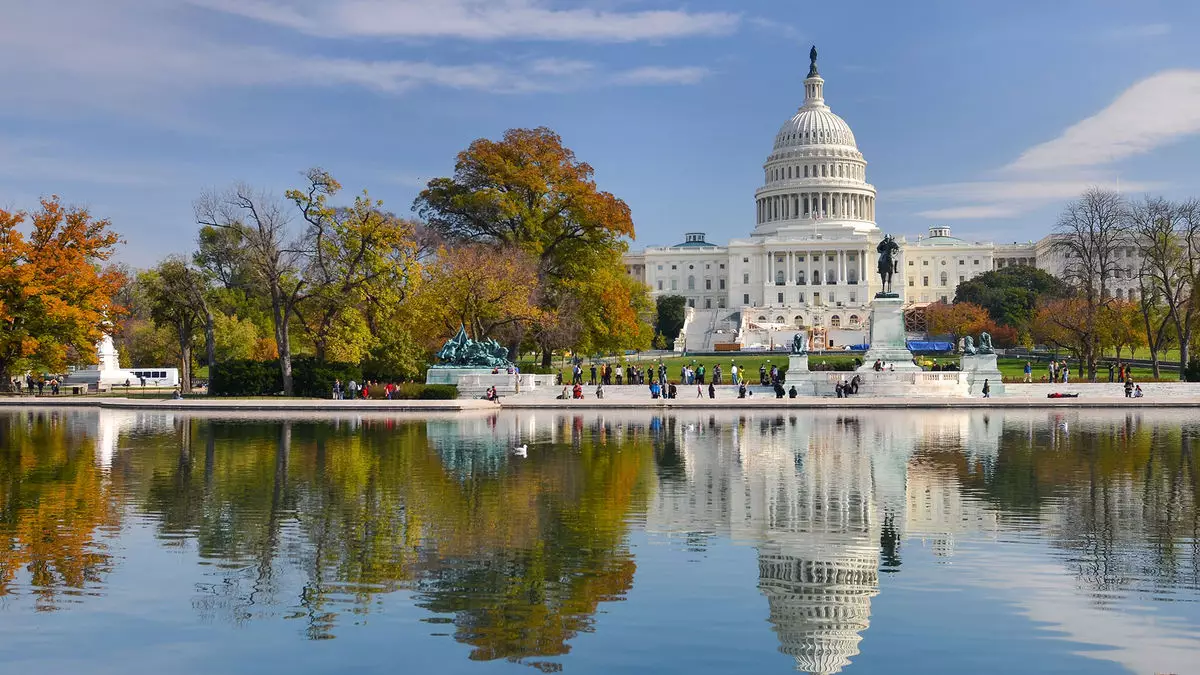The travel industry in the United States stands on the precipice of significant transformation as Donald Trump reclaims the presidency. With anticipated changes in Congress, analysts predict a departure from established policies that have shaped the travel sector in recent years. This article explores the implications of the new political landscape for inbound tourism, airline operations, and broader travel regulations.
As President Trump takes office, his administration is expected to adopt a markedly different stance on immigration compared to the recent Biden administration. Travel analyst Gary Leff highlights that Trump’s previous policies, particularly his focus on border control, could substantially affect international arrivals at airports. With greater scrutiny on visa processes and arrivals likely to be reinstated, the positive strides made to alleviate visa backlogs under Biden might be reversed. The potential reinstatement of stringent immigration measures presents a perilous threat to the inbound tourism industry, which relies heavily on the seamless movement of international travelers.
The anticipated shift towards a more aggressive foreign policy may also hinder efforts to foster positive diplomatic relations with pivotal countries, including China. Ongoing tensions regarding trade and other geopolitical issues could stifle recovery in travel between the U.S. and major international hubs, thereby impacting airlines and tourism operators heavily reliant on this traffic. Ultimately, a more hostile global environment could translate to reduced travel opportunities and elevated costs for both tourists and airlines.
Airlines at a Crossroads: Potential for Consolidation
While the implications of a Trump administration may be stark for international tourism, there may lie an unexpectedly advantageous scenario for domestic airlines. The Biden administration’s stringent antitrust policies, encapsulated in its opposition to airline mergers, may see a dramatic reversal. Lucinda Guthrie of Mergermarket anticipates that under Trump, the airline sector might experience a resurgence in mergers and acquisitions, presenting growth opportunities.
This potential for consolidation contrasts sharply with the current regulatory climate, which has prioritized consumer protection and competition. Regulatory scrutiny of airline partnerships, such as the American-JetBlue alliance, may diminish, allowing for innovative collaboration among airlines that could enhance services and operational efficiency. Moreover, airlines could find relief from ongoing inquiries into competitive practices initiated by Biden’s Department of Transportation (DOT). The end to this combative oversight could enable air carriers to focus more on recovery and service improvement rather than navigating regulatory challenges.
Consumer Protection Policies at Risk
Despite the potential benefits for airlines, a new administration may complicate consumer-oriented measures that have emerged under Biden. Initiatives that advocate for transparency regarding ancillary fees and require compensation for cancellations are currently in limbo. Under Trump’s leadership, the momentum of these protections could stall or face outright repeal, depending on how Congress finally aligns post-inauguration.
The Biden administration’s strong stance on consumer rights has led to imposing hefty fines on airlines for lapses such as operational failures and inadequate services for disabled passengers. These heavy-handed measures could become relics of the past if the Trump administration chooses to pivot towards a deregulatory agenda. The extent to which this shift could reshape consumer protections will largely depend on the composition and priorities of the new Congress.
One area where the new administration could face challenges is infrastructure development. During his first term, Trump aimed to pass a robust infrastructure bill but ultimately faltered. Conversely, the Biden administration successfully passed the $1.2 trillion Infrastructure Investment and Jobs Act, garnering substantial bipartisan support. Analysts indicate that while Trump may not prioritize repealing this bill, its future under his administration would depend on the political landscape of Congress, especially if it remains divided.
Trump’s approach may also diminish support for future infrastructure initiatives that align with broader state interests. Even though certain infrastructure bills enjoy bipartisan backing in Congress, the fragmentation of priorities and potential for political gridlock could stymie progress on essential projects, including improvements to airports and rail systems vital for enhancing travel experiences.
The return of Donald Trump and the potential for a divided Congress present a complicated landscape for the U.S. travel industry. Changes to immigration policies, substantial shifts in airline regulations, potential rollbacks of consumer protections, and the uncertain future of infrastructure funding will shape the industry’s trajectory.
As stakeholders in the travel sector brace for these evolving dynamics, the need for vigilance and adaptability will be paramount. The direction of U.S. travel policies will largely depend on the administration’s priorities, the influence of lobby groups, and the willingness of Congress to engage in meaningful dialogue about fostering a thriving travel ecosystem that serves both consumers and the industry alike. What unfolds in the coming months will undoubtedly leave an indelible mark on the landscape of American travel for years to come.

